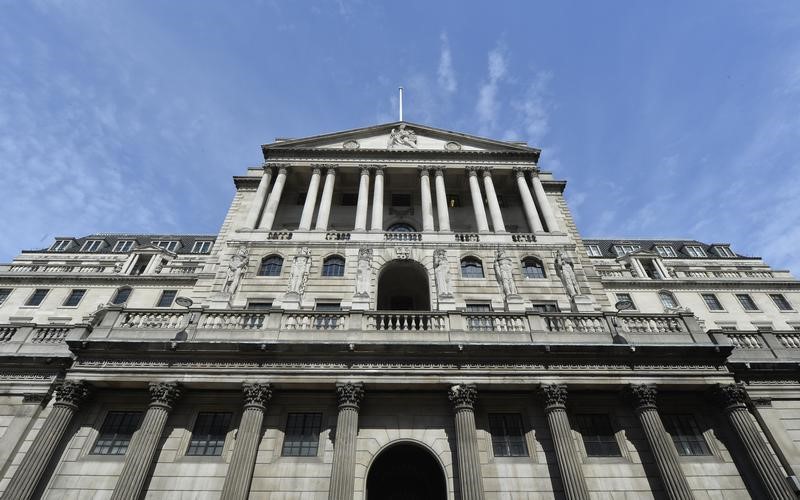By David Milliken and Huw Jones
LONDON (Reuters) - The Bank of England said on Thursday that it planned to quiz British asset managers about whether they could cope with a flood of investors asking for their money back in times of market stress.
The central bank said it was concerned that some financial markets -- including those for fixed income assets -- may be less liquid than they looked, but that funds had promised they could return investors' money at short notice.
The BoE has warned about potential fragile liquidity for some time, but this marks the first time it has publicly asked investment funds how they could cope with sudden calls for cash from investors.
"The Committee remains concerned that investment allocations and pricing of some securities may presume that asset sales can be performed in an environment of continuous market liquidity, although liquidity in some markets may have become more fragile," the BoE said.
The call came in a quarterly statement from the BoE's Financial Policy Committee (FPC), chaired by Governor Mark Carney, which was set up two years ago to spot emerging risks to Britain's financial stability.
Risks now include a further slowdown in China's growth and Greece and its financing needs, the FPC said.
The central bank said it would work with the Financial Conduct Authority, another British regulator, to ask asset managers about their strategies for managing liquidity of their funds.
"This would inform assessment of the extent to which markets are reliant on investment funds offering redemptions at short notice," the BoE said.
The regulators will also study why liquidity in some fixed income markets has shrunk, amid accusations from banks that new tougher capital rules makes it too costly to hold large stocks of securities to trade.
Bank of Canada Governor Stephen Poloz said during a visit to London on Thursday that new regulation has made the financial system safer but has affected liquidity.
Regulation has "reduced incentives for banks and some dealers to hold inventory, act as market-makers and provide a shock-absorber function in times when volatility is high," Poloz said.
Separately, the FPC said it would apply to British banks' Hong Kong assets a recent decision by Hong Kong regulators to set a counter-cyclical capital buffer of 0.625 percent. This would take effect from Jan. 27, 2016, the BoE said.
The BoE said that risks to Britain from its housing market had not increased since its last report in December, but that steps it took last year to guard against overheating remained necessary.
Last year the FPC imposed limits on how many high loan-to-income mortgages lenders could issue -- putting the brakes on rapid house price rises -- and asked banks to steadily increase how much capital they set aside to cover bad loans.

(Refiles to correct spelling of Bank of Canada's Poloz in advisory line)